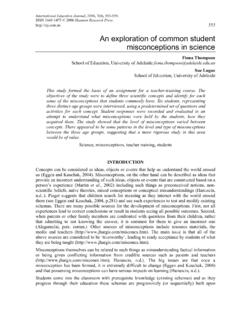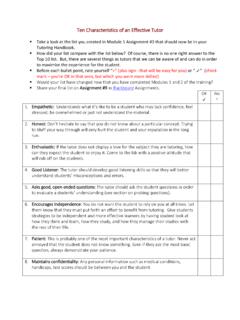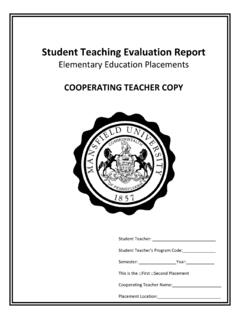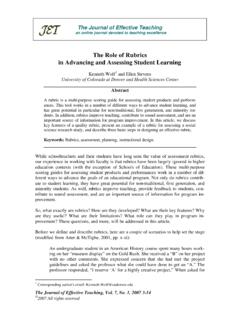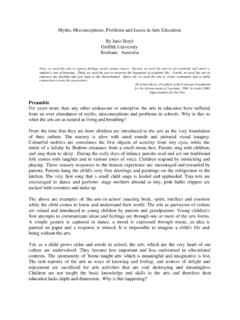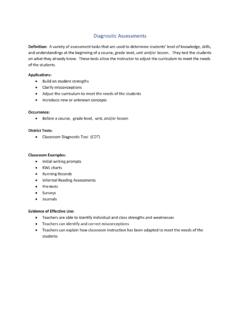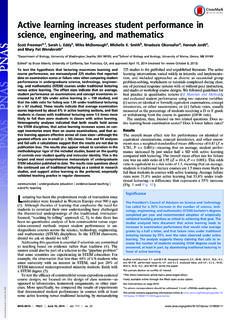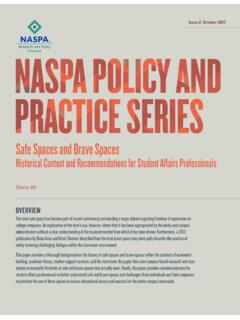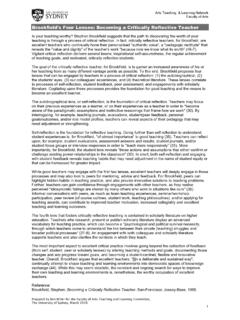Student Misconceptions
Found 9 free book(s)An exploration of common student misconceptions in …
files.eric.ed.gov556 An exploration of common student misconceptions in science accurate understanding while the youngest (age 6) had some vague notions of water and air pressure deciding what would sink or float. Details of student responses to testing whether various items would sink or float in Experiments 1-4 are given in Table 3. Table 3.
Ten Characteristics of an Effective Tutor
www.sac.educan they expect the student to enjoy it. Come to the lab with a positive attitude that will rub off on the students. 4. Good Listener: The tutor should develop good listening skills so that they will better understand students’ misconceptions and errors. 5. Asks good, open-ended questions: The tutor should ask the student questions in order
Student Teaching Evaluation Report - Mansfield University
www.mansfield.eduTeacher anticipates lesson areas where student misconceptions may interfere with learning PDE Field Experience Performance Indicators: Links content to related research-based pedagogy based on sound educational psychology principles in short-and long-range instructional plans.(PDE A.1)
The Role of Rubrics in Advancing and Assessing Student ...
files.eric.ed.govmisconceptions that students may have about the topic, and the instructor can adjust his or her teaching of these concepts accordingly. A valuable activity can be to make a list of the assessment criteria that students identify as the project is introduced and another list
Myths, Misconceptions, Problems and Issues in Arts Education
www.qcaa.qld.edu.auMyths, Misconceptions, Problems and Issues in Arts Education By Janis Boyd Griffith University Brisbane Australia First, we need the arts to express feelings words cannot convey. Second, we need the arts to stir creativity and enrich a student’s way of knowing. Third, we need the arts to integrate the fragments of academic life.
Diagnostic Assessments
www.eriesd.orgBuild on student strengths Clarify misconceptions Adjust the curriculum to meet the needs of the students Introduce new or unknown concepts Occurrence: Before a course, grade level, unit, and/or lesson District Tests: Classroom Diagnostic Tool (CDT) Classroom Examples: Initial writing prompts KWL charts
Active learning increases student performance in science ...
www.pnas.orgindicating that active learninghas a greater impact on student mastery of higher- versus lower-level cognitive skills (6–9), and the recognition that most concept inventories are designed to diagnose known misconceptions, in contrast to course examinations that emphasizecontent mastery or the ability to solve quantitative problems (10).
Safe Spaces and Brave Spaces
naspa.orgsome of the more resounding misconceptions within the safe space debate. SAFE SPACES VERSUS BRAVE SPACES: DEFINITIONS AND HISTORICAL CONTEXT The term safe space has been used in various contexts in higher education—from movement-building, to academic theory, to student support services, as well as in the classroom.
Brookfield's Four Lenses: Becoming a Critically Reflective ...
valenciacollege.edustudent experiences is, for Brookfield, "of utmost importance" to good teaching (35). Teachers can reflect upon, for example, student evaluations, assessment answers and results, student journals, and/or student focus groups or interview responses in order to "teach more responsively" (35). More
